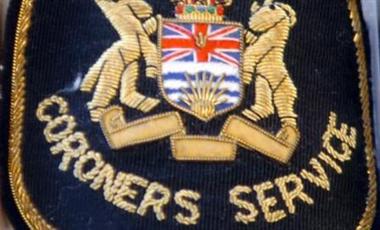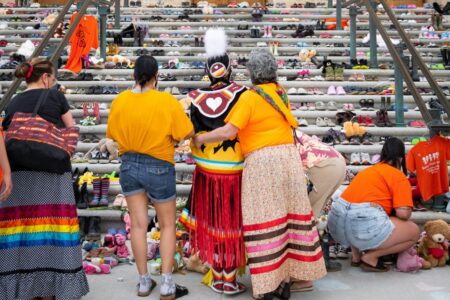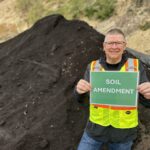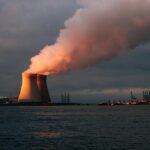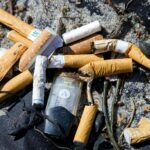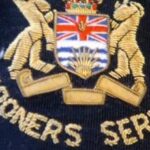B.C. First Nations return from Gulf spill determined to stop Enbridge oil tankers
British Columbians cannot afford to let Enbridge bring the devastation of the BP oil spill to their coast. That’s the message a delegation of B.C. First Nations is bringing back from the Gulf of Mexico today, after a four-day tour of the Gulf Coast area affected by the BP oil spill.
“Everywhere we went people told us the same thing: if you have a choice when
it comes to big oil development, don’t do it. And if you do, prepare for the worst,” said Gerald Amos, a councilor with the Haisla Nation.
Coastal and inland First Nations in B.C. are fighting Enbridge’s proposed Northern Gateway Pipeline, which would carry tar sands crude oil from Alberta to a tanker port at Kitimat, B.C. and bring 225 crude oil tankers per year to B.C.’s northern coastal waters.
The delegation learned of the BP spill’s impact on the Gulf Coast’s fishing economy from the president of the Louisiana Shrimp Association.
“Shrimp are to Louisiana what wild salmon are to B.C.,” said Art Sterritt, executive director of Coastal First Nations, an alliance of nine Nations
from B.C.’s central and north coast. “The shrimp fishermen told us that their economy is gone, but worse than that they risk losing a huge part of their fishing culture. That’s a message that hits close to home for our people who depend so heavily on fish and seafood.”
On a boat tour of Louisiana’s Barataria Bay, the delegation witnessed the massive cleanup attempt.
“It struck us how futile these cleanup efforts appear to be, despite all of the resources and technology being thrown at them,” said Sterritt. “If there’s a one-foot chop on the water, it shuts down the cleanup effort. It made us realize that cleaning up a spill in the weather and water conditions of the B.C. coast would be impossible.”
The delegation met with the United Houma Nation, an Indian tribe living on Louisiana’s southeast coast. “It was powerful to meet the Houma and share
our experiences as indigenous people,” said Amos. “The oil spill just adds to a whole lot of other impacts on their territories. They fear this oil spill could be the straw that breaks their culture’s back.”
The U.S. government estimates that to date the BP well has spilled between 170 and 500 million litres of oil. The supertankers Enbridge is proposing for B.C.’s North Coast carry approximately 300 million litres of crude oil.
“We’ve now seen what losing the Big Oil gamble looks like,” said Amos. “There are no economic benefits that could possibly justify living through something like Louisianans are living through right now.”
The members of the delegation plan to share the story of their trip with their communities over the coming months.



